Considering her experiences using The Circle Way to teach resiliency to college students, Michele Rusinko shares several thoughtful hosting tips which can be applied to any context.
Take time to center yourself in order to be present for others
Reflecting on his years as a classroom teacher, Haim G. Ginott wrote, “I have come to the frightening conclusion that I am the decisive element. It is my personal approach that creates the climate. It is my daily mood that makes the weather.” The same may said of the host. The only way I can be truly present for others, is if I take the time to center myself. This need informed the structure of my class. While I know my students appreciate the morning movement session, it is tremendously grounding for me as I begin each day. The 40-minute break that follows the morning movement is also critical for me to quietly prepare for the circle.
Check your preconceptions at the door and commit to “listening with compassion and curiosity.”
When I share with others that I teach resiliency classes for undergraduate college students, I hear disparaging remarks about coddled and entitled young adults who need excessive handholding. What I witness is entirely something else. My students were in preschool when passenger planes flew into the World Trade Center and have participated in active shooter drills since they were in kindergarten. Gun violence, family separation and sexual assault dominate the media and provide the background noise to their lives. Add to this, overwhelming student debt, poor job prospects and a toxic political climate. Their concerns and fears are very real. Yet so are their strengths. They are amazing problem solvers ready to roll up their sleeves and collectively work for positive change.
While it is helpful to regularly repeat guidelines and agreements, our most powerful teaching is simply modeling these guidelines and agreements.
The very first time I taught the Bouncing Forward class, the first day of class was the morning after I had needed to put down my beloved dog, Oliver. “Ask for what you need” became very personal. I explained to my class I had been through a really difficult few days with my dog’s health failing, and I was not as prepared as I would like to be. I asked for their patience and understanding. As an experienced teacher I know I could have blustered through the day with an upbeat demeanor. Instead I chose to be honest and ask for what I needed at that time. Maya Angelou once said she wanted to be known as “a woman who teaches by being.” So do I.
Make room for magic.
Tal Ben-Shahar, one of the thought leaders in Positive Psychology coined the expression "Permission to be human." He regularly encourages self- compassion by encouraging us to give ourselves "permission to be human." Maria Sirois, one of my teacher mentors, and a colleague of Tal's, recently added "Permission to magnificent" to the conversation. I sincerely believe it is somewhere in the spaciousness between “Permission to be human” and “Permission to magnificent” that we make room for the magic that happens in circle.
Michele Rusinko is a teacher, choreographer, dancer, writer, engaged citizen and passionate life-long learner. She has taught at Gustavus Adolphus College, in St. Peter, Minnesota, since 1988, and served as chair of the Department of Theatre and Dance for over half those years. She received her B.A. from St. Olaf College and M.F.A. from Arizona State University. Her current research explores the intersections between her experience teaching dance and somatic science; her scholarship in the psychology of resiliency; and an embodied understanding of human dignity. She holds a certificate in Positive Psychology from the Wholebeing Institute and is currently developing an undergraduate curriculum in the science of resiliency as grounded in the field of Positive Psychology (the scientific study of human flourishing). Michele also brings experience in designing and hosting circle-based processes for groups who want to meet and work together in a more collaborative way.


